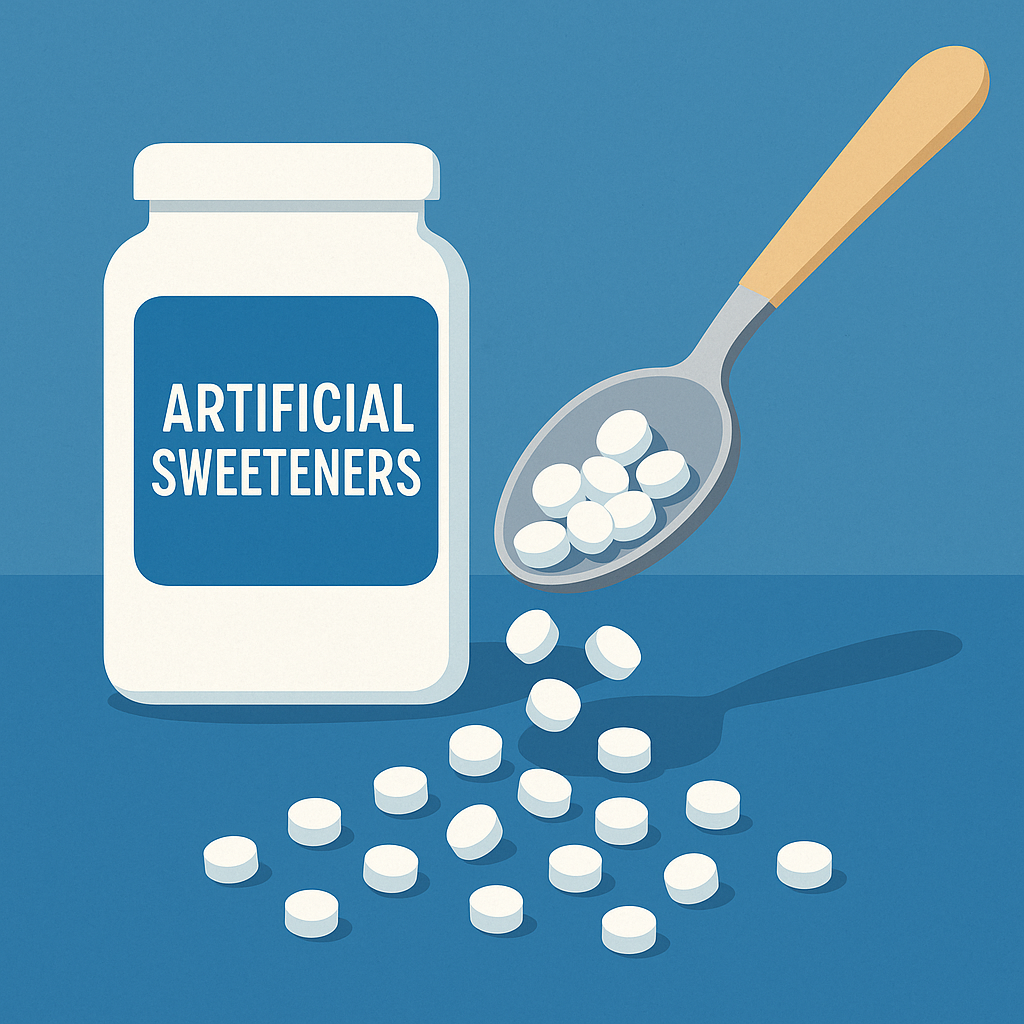For many people looking to cut down on sugar, artificial sweeteners may seem like a smart switch. They’re marketed as “guilt-free,” low-calorie, and blood sugar-friendly — but is that the whole story?
The truth is, just because something doesn’t contain sugar doesn’t mean it’s good for you. In fact, artificial sweeteners could be quietly undermining your health — particularly your gut and metabolism.
What Are Artificial Sweeteners?
Artificial sweeteners are synthetic sugar substitutes, found in everything from “diet” drinks and sugar-free gum to protein bars and even cough syrups. Common names include:
- Aspartame (e.g. in Diet Coke)
- Sucralose (e.g. in Splenda)
- Saccharin
- Acesulfame K
These sweeteners can be hundreds of times sweeter than regular sugar — and that’s part of the problem.
What the Science Says
Emerging research shows that artificial sweeteners may:
- Disrupt the gut microbiome by reducing beneficial bacteria and encouraging the growth of harmful strains.
- Interfere with glucose metabolism, potentially leading to insulin resistance.
- Increase sugar cravings by confusing the body’s natural appetite regulation.
- Create a false sense of “healthiness” — which can lead to overconsumption of ultra-processed foods.
One study published in Nature found that certain sweeteners altered the gut bacteria in ways that led to glucose intolerance in both mice and humans — a major risk factor for type 2 diabetes.
“Sugar-Free” Isn’t Always Healthier
Many foods labelled “sugar-free” or “low sugar” are still highly processed and full of preservatives, thickeners, and additives. These can contribute to inflammation, digestive discomfort, and long-term metabolic strain.
So while it might feel like you’re making a healthier choice, the long-term consequences can outweigh the short-term benefits.
Natural Alternatives
If you’re looking to reduce sugar but still enjoy the occasional sweetness, consider more natural, gut-friendly options:
- Stevia (from the stevia plant, ideally unprocessed)
- Monk fruit (a natural, zero-calorie sweetener from Asia)
- Raw honey (in moderation)
- Maple syrup (contains antioxidants and minerals)
- Whole fruits (the best way to satisfy sweet cravings with fibre and nutrients)
The key is to use even natural sweeteners sparingly and mindfully.
Final Thoughts
While artificial sweeteners might seem like a harmless way to enjoy sweetness without the sugar, the evidence suggests they may come with hidden health costs. Gut health is foundational to everything from immunity to mental clarity — and anything that disrupts it is worth reconsidering.
If you’re trying to support long-term health, manage weight, or balance blood sugar, the best strategy is to reduce your sweet tooth overall, rather than relying on artificial substitutes.
Because in the end, real food is always the smarter choice.
Written by Milvia Pili (FNTP)
Nutritional Therapist | Blue Zone Nutrition




